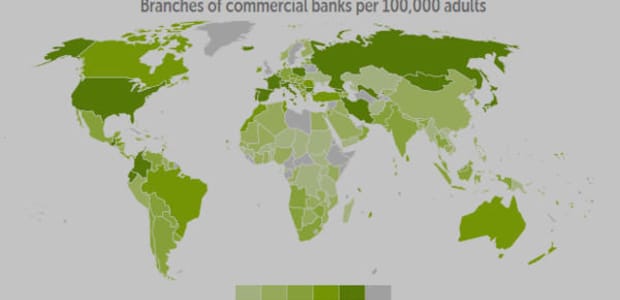advertisement
IMF Releases the 2016 Financial Access Survey, includes data on East Africa
The International Monetary Fund (IMF) has released the results of the seventh annual Financial Access Survey (FAS) indicating among its…

The International Monetary Fund (IMF) has released the results of the seventh annual Financial Access Survey (FAS) indicating among its data that for every 100,000 people, Kenya has 10.16 ATM machines, Uganda has 4.55, Tanzania has 27.37 while Rwanda has 5.70.
The FAS is a key source of data on financial inclusion, providing insights on the availability and use of financial products such as deposit accounts, loans, and insurance policies by individuals and firms across the globe.
A release from IMF explains that this information is based on administrative data that is collected from both traditional financial service providers like commercial banks, microfinance institutions, or other deposit-taking institutions, and providers of digital financial services such as mobile money.
advertisement
The important role of digital financial services in promoting the spread of financial inclusion was explicitly recognized under the leadership of the Chinese G-20 Presidency this past year, leading to a revision and expansion of the G-20 Financial Inclusion Indicators. The FAS has been an official recognized source of these indicators since the G-20 Financial Inclusions Indicators were launched in 2012.
The FAS database contains more than 150 series for up to 189 economies spanning the period 2004-15. This information can help policymakers identify opportunities to foster financial inclusion and allows analysts to gain a better understanding of the various linkages between financial inclusion and financial stability, income inequality, and economic growth.
In an increasing number of economies, digital financial services are gaining traction, though their recent experiences with them may differ. For example, in economies where mobile money services have been available for eight years or more such as in Malaysia or Zambia, there is on average one mobile money account for every three adults. These accounts are not yet as widespread in economies like Guyana and Solomon Islands, where mobile money services only became available in the past few years. However, take-up rates in such economies are promising, as on average the number of mobile money accounts per adult grew by 2 percent annually over the past three years.
advertisement
Following growing interest in gender-related statistics on financial inclusion from many users, a small number of national authorities were surveyed recently to assess their capacity to compile and disseminate these statistics by drawing from administrative data sources. The results of this pilot will be made available on the FAS website (http://data.imf.org/FAS) later this year.
The latest FAS data are available free of charge on this website, which also contains other information such as the metadata that provide additional insights into specific definitions and circumstances in economies. The FAS has been conducted since 2009 with generous financial support provided by the Netherlands’ Ministry of Foreign Affairs and the Bill & Melinda Gates Foundation.